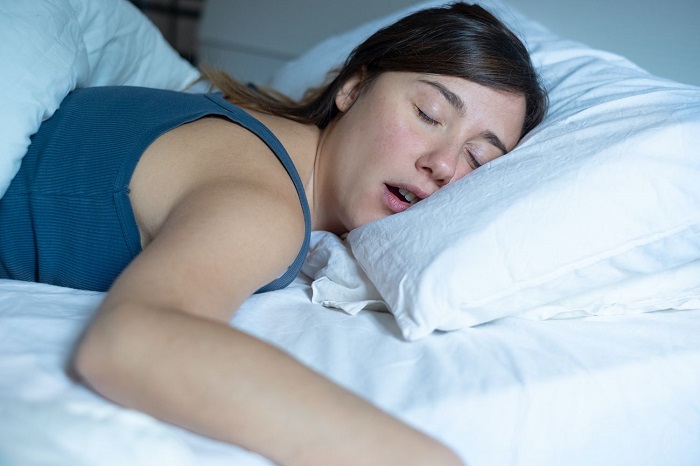Obstructive sleep apnea refers to a disorder in which the soft tissue at the back of the throat collapses and blocks the airway periodically as you sleep. Since it occurs during sleep, many people do not realize they have this problem. But partners of these patients might notice brief cessations in breathing during sleep. And the patient might wake up gasping or feeling groggy in the mornings.
Though not acutely dangerous, untreated sleep apnea will put strain on the lungs and heart, putting you at risk of serious blood pressure and cardiac problems. And disrupted sleep will lead to a decline in cognitive abilities.
Do not ignore sleep apnea symptoms. Your doctor can treat this disorder. But your dentist can help you in mild cases of obstructive sleep apnea as well. Read on to learn more about how your dentist can help resolve symptoms related to sleep apnea.

How Does Sleep Apnea Relate to Oral Health?
Many factors can contribute to sleep apnea symptoms, including weight, alcohol consumption, and underlying medical conditions. But your oral health can put you at risk of obstructive sleep apnea as well.
Your dentist is an expert in the structure of your teeth and gums. But they also study the airway and how your oral health can impact its function. They understand that your teeth and jaw alignments can increase your risk of sleep apnea.
You might develop crooked teeth or malocclusions due to genetics, poor oral habits, or other reasons. But you will need help from a dentist to fix bite problems and other concerns that can contribute to sleep apnea and more complications. Schedule a consultation with your dentist to learn how they can help you improve not only your oral health but your overall well-being.
How Can My Dentist Treat Sleep Apnea?
Your doctor might recommend using a CPAP machine to treat sleep apnea. This machine involves placing a mask over your mouth and nose that forces air into your airway so that you do not experience these cessations in breathing. While this will work, some patients might not like the discomfort or noise of the machine as they sleep.
This might result in a decline in compliance with using the machine, which will leave sleep apnea untreated. Ask your dentist about a custom-made night guard that can help to treat mild cases of sleep apnea instead.
The mouthguard-like appliance will fit over your teeth comfortably and securely. It keeps your mouth and jaw aligned in such a way that reduces the risk of soft tissue collapsing and leading to sleep apnea symptoms.
And the custom fit ensures you do not have to worry about the guard slipping out of place as you sleep. Your dentist can also help you fix bite problems that could put you in danger of sleep apnea.
Learn more by calling your dentist about your symptoms today. They will evaluate your dental structure and let you know which treatments can help.
